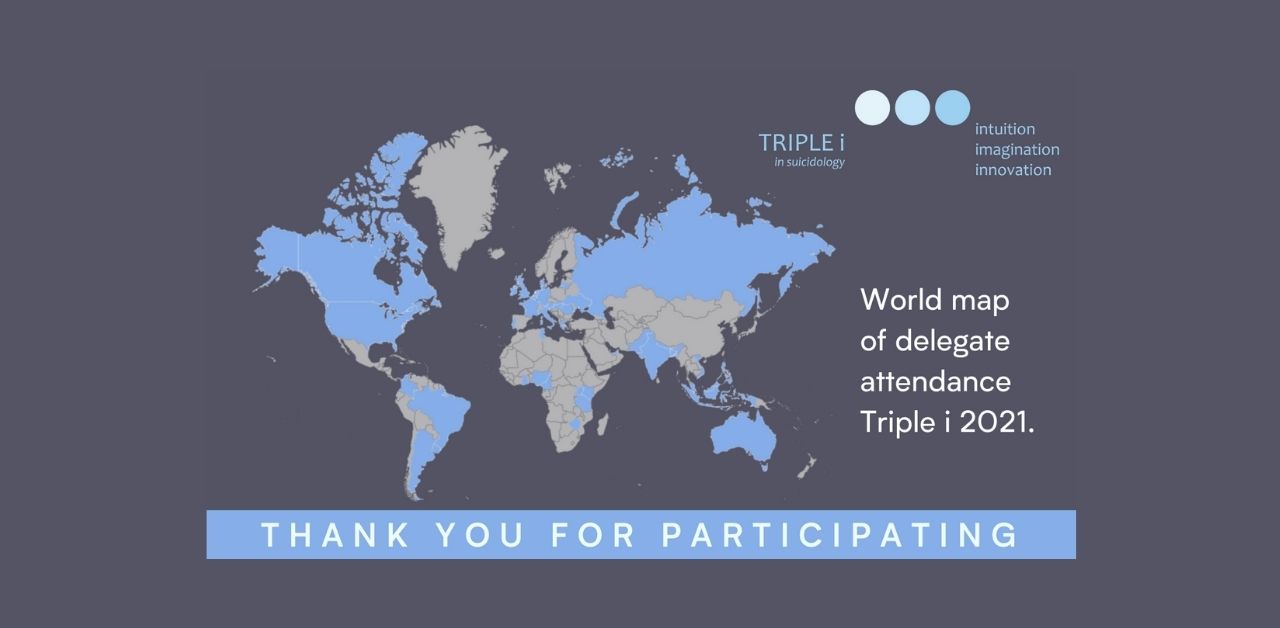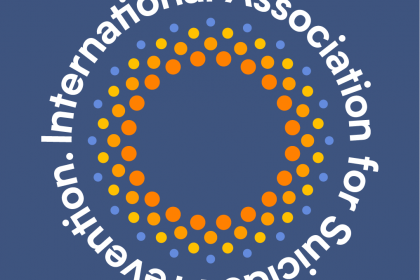Every year TRIPLE i delivers on its mission to encourage intuition, imagination and innovation in research and prevention of suicide and suicidal behaviour, and 2021 was no different. Despite the online format and the vast distances between attendees, advances in suicide prevention theory research and practice were shared and discussed with delegates from over 44 countries, as if in person. For those less familiar with TRIPLE I, this international conference is organised by the Slovene Centre for Suicide Research, in memory of the late Prof. Andrej Marušič.
Several IASP Early Career Group (ECG) members joined the conference, which covered an array of topics, including suicide in low-and middle-income countries (LMICs), youth suicide prevention, suicide and COVID-19, and physical and mental illness and suicide risk. Some of the true value of the conference shone through in the discussions, meaningfully built into each session. The first presentations were eagerly and insightfully delivered by Prof Rory O’Connor and Prof Jo Robinson, two passionate researchers, geographical opposites united in their examination of suicide risk. Professor O’Connor discussed the short, medium, and long-term impacts of COVID-19 on population mental health, citing limited evidence thus far of an increase in suicides since the pandemic, possibly due to social and community cohesion, and economic supports. Following the presentation of data from the United Kingdom, Prof. O’Connor highlighted the need for reporting of high-quality and timely data to address patient needs in the context of this pandemic. Professor Robinson continued the session to share insights into frameworks for youth suicide prevention, effective interventions, and guidelines in addition to the benefits of involving young people in research.
Prof Vita Poštuvan shared reflections on the nature of grief from suicide in the context of COVID-19, citing the added potential for unresolved grief owing to restrictions preventing engagement with rituals and traditions following death. Following this, Prof Maurizio Pompilli discussed the complexities of ‘suicidal pain’, critical to anticipating and preventing suicide. Day two of TRIPLE i started with an engaging presentation from Prof Annette Erlangsen who highlighted in great detail the heightened suicide risk among people with physical illnesses, reiterating the need for targeted interventions to prevent suicidal behaviours within this group. Prof Murad Khan explored how LMICs are being challenged by COVID-19 and noted the impact which public health measures are having on people’s
mental health. A quote that stood out during this presentation is “If we don’t know what we need to control then how can we control it?”, referring again to the importance of timely surveillance data in LMICs.
Dr Silvia Pelaez kept the momentum going in discussing suicide in pandemia; in particular the importance of sustained and unified messaging in suicide prevention, which should focus on instilling hope and empowering individuals and communities. The rest of the session was led by Ms Meta Lavrič and Ms Nina Krohne, who focused our attention on trauma and suicide, both highlighting the need for sensitive and targeted support for trauma-affected populations. The media and suicide were a key topic on the closing day of TRIPLE i, with an ever-intriguing presentation from Prof Thomas Niederkrotenthaler who evidenced the lack of adherence to existing guidelines in relation to the portrayal of suicide methods in the media. Prof Niederkrotenthaler asserted that progression in this area requires active and evaluated collaboration with media professionals across media types. Ms Vanja Gomboc continued the conversation to further highlight the need for more resources and tools to adequately portray suicide in the media and to ensure greater compliance.
Prof Lai Fong Chan presented a sensitive and interesting overview of factors associated with health care workers suicidal behaviour during COVID-19, which highlighted the essential need to provide sustained support to frontline healthcare workers. Finally, Prof Diego De Leo discussed the ongoing impact of COVID-19 among older adults; citing important resource challenges within nursing homes which have compounded suicide risk among older persons, in addition to increased experiences of loneliness and social isolation caused by the pandemic. To bring the research presented to you on paper/screen requires more words than we have space for, which is a sign of a conference that provoked discussion, thought and engagement. See you all in 2022!
IASP ECG Member





